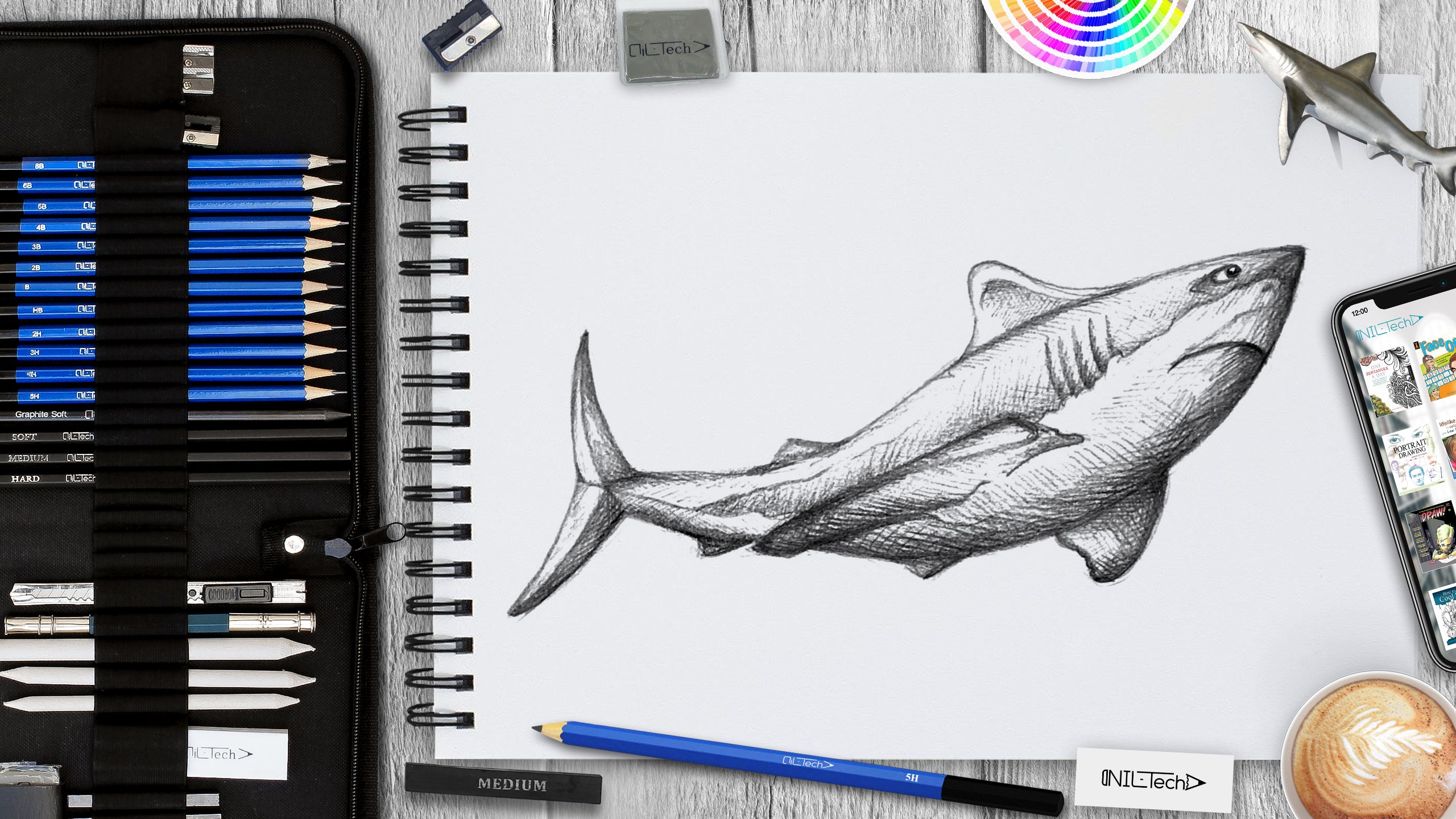
How to Draw a Shark
Aug 13 , 2020

Hi everybody, and welcome to a new NIL-Tech drawing tutorial: "Shark". Sharks make the news for all the wrong reasons. However, there are many other things concerning this marvelous fish to learn. For 400 million years, sharks have roamed every sea in the world. Several species have thrived on our planet for as long, and fewer have been so misunderstood. The reality is that these mysterious, spectacular creatures are vital to the equilibrium of marine ecological communities.
Here are some interesting facts about Sharks:
1. Sharks have a sixth sense. In addition to their excellent feeling of scent, sharks likewise can identify prey by tapping it into the small electrical fields that other animals generate using small body organs called the ampullae of Lorenzini. These tiny pores, located near their nostrils, around the head, and below their nose. They are something like a sixth sense. The pores attach to long, jelly-filled bulbs that are linked to nerves.
2. Not all sharks stay in the ocean. If you believed it was secure to go back into the lake... While sharks live in every one of the world's oceans. However, a few species are likewise known to live in freshwater lakes and rivers. For instance, bull sharks are located in tropical rivers and have evolved to swim between salt and freshwater. River sharks, true to their name, have been found in rivers of South Asia, New Guinea, as well as Australia.
3. Some sharks are pregnant for two years. You thought nine months seemed like a while, but the spiny dogfish species of shark can take two years to gestate before the delivery. This is the most extended gestation duration of any animal.
4. Yes, you can ride a shark. The most abundant species of shark is additionally among one of the most easygoing. Whale sharks have been known to give a ride to hitchhiking swimmers and cruise them. However, marine life professionals caution against promoting this sporting activity. When individuals put a lot of pressure on a fish, it removes that slime covering and can have unfavorable health influences for the fish.
5. They don't have bones in the skeleton. Seriously. Sharks' skeletal systems are constructed from pure cartilage and muscle. Considering that it's half the bone density, this makes the shark lighter and extra flexible. This is very useful when it's going after the victim and having to make sharp turns.
In this tutorial, we used the following supplies:
- B pencil
- 3B pencil
- 4B pencil
- White Vinyl Eraser
- Kneaded Eraser
STEPBYSTEP10
Let's draw a "Shark" step by step!

Step 1. Start by drawing the skeleton of the body with lines and a circle (pencil B).

Step 2. Draw the body and tail contour over the frame from step 1 with smooth lines (pencil B).

Step 3. Draw the fins, mouth, and eyes. Since the shark is in perspective, do not forget that the fins should also be drawn in perspective (pencil B).

Step 4. Add small details like gills and texture lines (pencil B).

Step 5. Erase the excess construction lines and brighten the contour (pencil B).

Step 6. Start hatching from the bottom of the shark. There will be the darkest part of the drawing (pencil 3B).

Step 7. Add the overall hatching tone (body, fins, and tail). Outline the shadows first (pencil 4B).

Step 8. Add the remaining details and brighten the tone of the shadows (pencil B).

 |
Drawing Pencil SetExcellent GIFT IDEA - Non-Toxic and safe, easily portable and made with quality top-notch materials. Basic and innovative drawing supplies come together in NIL Tech set as an exceptional replacement for old-fashioned pencil boxes. The main attraction at any occasion from your drawing enthusiast friends, sketchers, artists to your kids or students boosting their creative projects and enjoy their ear-to-ear smile! |






